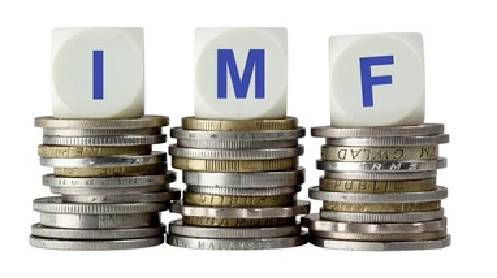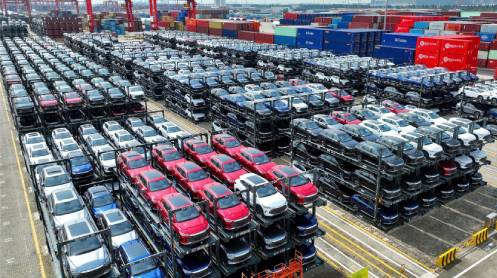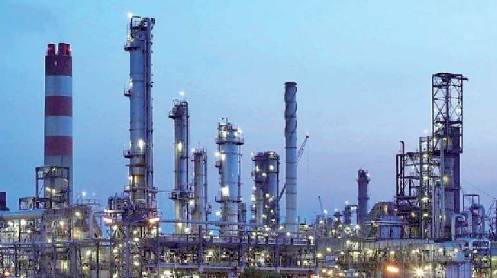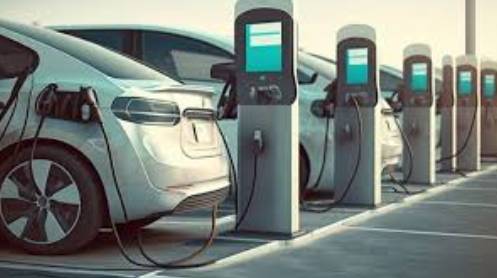Research house says indicators suggest that overheated economy has stabilised
KARACHI:
Pakistan’s economic indicators have significantly improved under the ongoing International Monetary Fund (IMF) Stand-By Arrangement (SBA) of $3 billion, suggesting that economic activities have stabilised and are ready to enter a growth phase ahead of the new loan package from the lender.
In its latest monthly update released on Thursday, Topline Research reported that the country’s key economic indicators, including the current account deficit (CAD), debt and liabilities, foreign exchange reserves, inflation reading, and rupee-dollar parity, improved in February 2024.
The report stated that Pakistan’s balance of the current account turned positive in February 2024, settling at a surplus of $128 million for the month compared to a deficit of $303 million in the previous month, January 2024.
Accordingly, the CAD for the first eight months (Jul-Feb) of the current fiscal year reduced to $999 million compared to $3.85 billion in the same period of the last year.
Similarly, Pakistan’s total debt and liabilities as a percentage of GDP stood at 85.3% in the second quarter of FY24, down from 90.38% in the last quarter of FY23.
The report elaborated that domestic debt as a percentage of GDP stood at 44.72% and external debt stood at 29.66% of GDP in the second quarter of FY24.
The country’s foreign exchange reserves (held by the State Bank of Pakistan) hit a five-week high, improving to over $8 billion in the week ended March 15, 2024. They grew cumulatively by $122.2 million in the latest two weeks to $8.02 billion, recovering from a recent two-month low at $7.89 billion as of March 1, 2024.
The reserves are estimated to increase to $9 billion to $10 billion by the end of the current fiscal year on June 30, 2024. Pakistan’s CPI inflation stood at 23.06% in February 2024 compared to 28.34% in January 2024, better than industry expectations. This is also the lowest inflation in 20 months and down from a multi-decade high of 38% seen in May 2023.
On a month-on-month basis, CPI inflation remained flat with just a 0.03% rise in February 2024 compared to an increase of 1.8% in January 2024. In the eight months of FY24, average inflation remained elevated at 28.03% compared to 26.16% in the same period of the last year, according to the research house.
Moreover, the rupee-dollar parity has remained stable for the past several months, with the domestic currency hitting a five-month high at Rs278.39/$ on Thursday, regaining over 10% in the past six-and-a-half months to date.
While speaking to The Express Tribune, Sunny Kumar, the Deputy Head of Research at the firm, stated that maintaining economic discipline under the ongoing IMF loan programme of $3 billion helped the nation improve its economic indicators from worsening amid the failure to resume the previous $6.5 billion programme in June 2023. He noted that the current economic indicators suggest that the economy has stabilised from being overheated two years ago, supporting the gradual ramping up of economic activities to achieve sustainable economic growth going forward.
Kumar stated that his research house anticipates growth at 3% in the current fiscal year 2024, with major support coming from the agriculture sector. The economy had contracted by 0.3% in FY23.
“We foresee economic growth further expanding to 3.5% in the next fiscal year 2024-25, with broader support coming from all three major sectors, including agriculture, industries, and services,” Kumar said.
A further deceleration in inflation would allow the central bank to cut its benchmark interest rate and provide cheaper banking finance to the private sector, which would help increase industrial activities.
He added that the better economic indicators should help the nation secure a new IMF loan programme on better conditions.
However, the IMF would recommend the government to increase revenue collection by taxing the untaxed sectors, including agriculture, real estate, wholesale, and retail sectors.
Besides, it would ask to increase energy (power and gas) tariffs and increase the petroleum development levy to Rs100/litre from Rs60/litre at present.
Story by Salman Siddiqui







